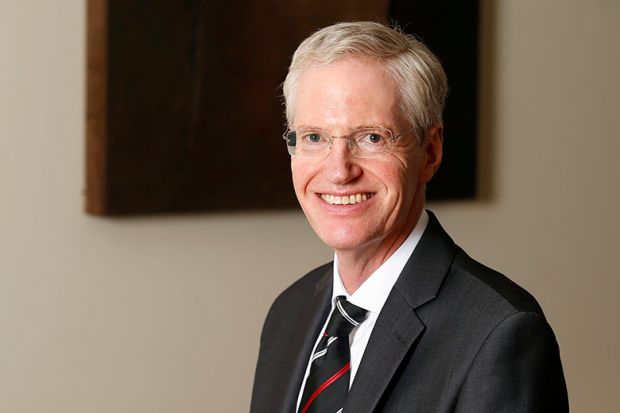The outgoing vice-chancellor of The Open University has announced that he will be leaving the position earlier than planned to focus on cancer treatment.
Tim Blackman, who has led the UK’s largest institution by student numbers since 2019, has stepped down with immediate effect and will be replaced by deputy vice-chancellor Josie Fraser on an interim basis while a permanent successor is sought.
Professor Blackman announced in August that he planned to retire in May next year but has now shared news of his cancer diagnosis.
Staff at the university were informed of the decision in an email by university chair Malcolm Sweeting on 29 October. A statement said the OU expected to have appointed a new permanent leader by summer 2025.
Professor Blackman, the former vice-chancellor of Middlesex University, previously served as pro vice-chancellor for research and quality at the OU, as well as acting vice-chancellor.
“Serving this extraordinary institution, first as a pro vice-chancellor and then as vice-chancellor, has been one of the greatest honours of my professional life,” he said.
“The Open University’s mission to make education accessible to all, regardless of background or circumstance, has always inspired me, and I am immensely proud of what we have achieved together.”
Professor Blackman’s time in charge of the leading distance-learning provider saw it grow its intake by nearly 20 per cent during the pandemic but also brought new challenges as other universities moved to offer more remote teaching opportunities.
The institution returned to good financial health after a tumultuous period under former BBC executive Peter Horrocks, but in 2022-23 it reported a £25.1 million deficit after missing student recruitment targets.
Plans are under way to move the institution from its home since 1969 on the outskirts of Milton Keynes into the city centre, with in-person teaching being considered for the first time.
Professor Blackman also oversaw efforts to move 4,000 associate lecturers on to permanent contracts as part of efforts to address widespread casualisation in the sector.
The university was placed at the centre of academic freedom debates earlier this year when it lost an employment tribunal to former professor Jo Phoenix, who claimed that she had been hounded out of the institution because of her gender critical views and that senior management had not done enough to protect her.
Mr Sweeting said Professor Blackman had “led the university through many complex and challenging developments” and thanked him for his “dedication and leadership over the last five years”.




